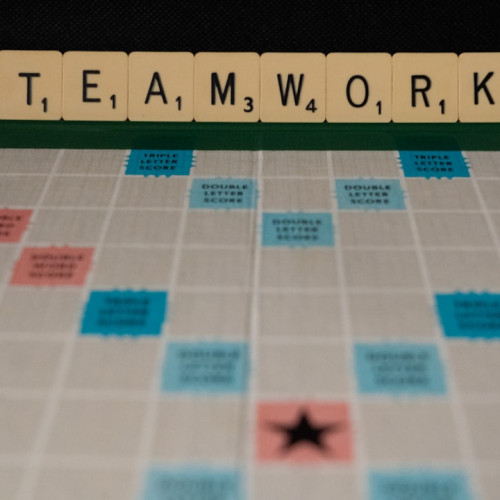
How to Build a Strong Economic Team: Key Strategies for Success
# Introduction. In today’s rapidly changing economic landscape, building a strong economic team is crucial for any organization, whether it’s a startup, a corporation, or a government entity. An effective economic team can help navigate complex market dynamics, make informed decisions, and drive sustainable growth. In this guide, we'll delve into the essentials of building a proficient economic team, from identifying the right skill sets to fostering a collaborative environment. # Understand the Core Objectives of Your Economic Team. Before assembling your economic team, it is vital to define the specific objectives that the team will work towards. Different organizations have varied goals; some might focus on risk assessment, while others may prioritize market analysis or forecasting economic trends. By determining these objectives early on, you provide a clear direction for recruitment and team alignment. For instance, if your aim is to innovate within product development due to market demands, seek individuals with a strong background in consumer economics and market research. Additionally, understanding your core objectives will allow you to evaluate the effectiveness of your team members as they contribute towards these goals. Regular reviews can help realign the team’s focus when needed, ensuring sustained progress. # Identify Essential Skills and Qualifications. Having established the objectives of your team, the next step is to identify the necessary skills and qualifications required for each role. Generally, a well-rounded economic team should consist of diverse talents, such as: - **Economists:** These individuals analyze data, create economic models, and offer insights on market trends. Look for qualifications in economics, statistics, or mathematics. - **Data Analysts:** As data-driven decision-making becomes increasingly important, having skilled data analysts who can interpret large data sets is vital. They should proficiently use statistical software and tools. - **Financial Analysts:** They assess financial health and investment opportunities. Their skills in financial modeling, valuation, and market analysis are critical to understanding economic indicators. - **Communication Specialists:** The ability to communicate complex data to non-expert stakeholders is essential. A professional with excellent communication skills ensures that insights and strategies are effectively presented. In building your team, focus not just on academic qualifications but also on real-world experience and a collaborative spirit. # Foster a Collaborative Environment. Creating a strong economic team goes beyond recruiting the right individuals; fostering a collaborative environment is equally important. A culture of collaboration encourages team members to share ideas, challenge assumptions, and engage in open dialogue. To promote collaboration: - **Encourage Open Communication:** Provide platforms for discussion such as team meetings, brainstorming sessions, or digital communication tools. - **Team-Building Activities:** Organizing activities that strengthen personal relationships within the team can enhance trust and communication. - **Cross-Training Opportunities:** Allow team members to learn from each other’s expertise. This cross-pollination of knowledge helps develop a more integrated team capable of handling diverse challenges. By developing a workplace culture that values collaboration, leaders can maximize the potential of their economic team. # Implement a Continuous Learning Program. The field of economics, just like the business world, is subject to constant change. Therefore, an effective strategy for building a strong economic team involves investing in continuous learning. Encourage team members to stay updated on the latest economic trends, analytical tools, and research methodologies. A continuous learning program can include: - **Workshops and Seminars:** Regular workshops led by industry experts can significantly enhance skills. - **Online Courses:** Platforms like Coursera or LinkedIn Learning offer a wide range of economics courses. - **Conferences:** Sending team members to industry conferences can provide fresh insights and networking opportunities. By committing to continuous learning, you not only enhance your team’s skill set but also cultivate a growth mindset that benefits your organization as a whole. # Monitor Team Performance and Development. Lastly, established metrics and metrics should guide the evaluation of team performance and individual development. Utilize both qualitative and quantitative measures to assess the team's effectiveness in meeting objectives. Performance reviews can be conducted regularly to identify strengths and areas for improvement. Consider implementing a balanced scorecard system that evaluates performance on several fronts: - **Financial Metrics:** Analyze how economic insights contributed to the organization's bottom line. - **Project Outcomes:** Review the results of specific projects undertaken by the team. - **Feedback Mechanisms:** Solicit feedback from team members and stakeholders to gain insights on team dynamics and effectiveness. Monitoring performance and development allows you to make data-informed decisions regarding promotions, additional training, or even the recalibration of objectives, keeping your team on the right track. # Conclusion. Building a robust economic team requires a strategic approach that marries clear objectives with skilled professionals. By fostering a collaborative environment, investing in continuous education, and monitoring performance, you can create a team that not only meets current economic challenges but is also adaptable to future market dynamics. Ultimately, a strong economic team provides the foundation for informed decision-making and the sustainable success of your organization. .








